Check out what these bedding industry executives say about how they encourage staff satisfaction and what makes them look forward to coming to work every day
“Because I’m happy
Clap along if you feel like a room without a roof
Because I’m happy
Clap along if you feel like happiness is the truth
Because I’m happy
Clap along if you know what happiness is to you
Because I’m happy
Clap along if you feel like that’s what you wanna do.”
— “Happy” by Pharrell Williams
How’s your workday going? Are you getting things done? Do you feel like you’re contributing? Do you feel appreciated by your managers? Are you enjoying the interactions with your co-workers? Do you feel, as Pharrell Williams sings, like a room without a roof?
If you answered “yes” to those questions (OK, maybe not the last one about the roof), you’re likely to be happy with your job, according to employment website Monster.
In an article drawing on results from a 2017 Robert Half survey and report, “The Secrets of the Happiest Companies and Employees,” Monster contributor Daniel Bortz notes that, to be happy at work, most people need five things:
- To feel accomplished
- To receive positive reinforcement
- To like their co-workers
- To have some autonomy
- To feel a sense of pride.
BedTimes asked nearly a dozen executives of sleep products manufacturers and components suppliers how they assess employee happiness, what their companies do to promote employee satisfaction and what makes each of them happy at work. Many of their answers mirror the findings of the Robert Half survey.
We also asked about specific corporate programs, policies and benefits their employees appreciate most. See how your company compares and consider what ideas you could borrow to improve employee satisfaction and engagement in your workplace.
(Some comments have been lightly edited for clarity and length.)
1. How do you define a happy employee? How can you recognize a satisfied staffer?

Rion Morgenstern
Pleasant Mattress
“Happiness is so fleeting that it isn’t a good long-term gauge of employee satisfaction. Instead, I look for engagement to determine success and satisfaction. For example, listening to the pronouns employees use when referring to the company tells an important story. I listen for inclusive pronouns like ‘we,’ ‘our’ or ‘us.’ When an employee switches to ‘they,’ ‘them’ or ‘the company,’ it’s clear they feel separated from their work and the company and are disengaged.” — Rion Morgenstern, president and chief executive officer of Pleasant Mattress, a manufacturer based in Fresno, California. Not counting odd jobs when he was young, Morgenstern has worked for the third-generation family business for eight years.
“A happy employee is engaged and willing to support others from time to time in other areas of the business. Happy workers care about their craft and make better products.” — Valerie Stranix, general manager of Toronto-based Marshall Mattress. Stranix has been with parent company the Flex Group for 3 ½ years and joined the bedding manufacturer in early 2019. She has more than 20 years of experience in the bedding industry.
“A happy employee is one who has a sense of purpose and enjoys collaborating with their co-workers to make something good happen.”
— Rachel Underwood, manager of human resources for Tempur Sealy International Inc., which has headquarters in Lexington, Kentucky. She’s been with the mattress major for about six years.
“I mainly want to see passion. For me, passion is commitment, but moreover, it makes you wake up in the morning eager to go to work. I look for passion about the product we make (and taking pride in it), passion about our customers and market, and passion about the company.”— Ben Ducatteeuw, CEO of Latexco U.S. Holdings LLC, a foam supplier based in Lavonia, Georgia. He’s been with the company since 2017 and has worked in the bedding industry for more than 17 years.
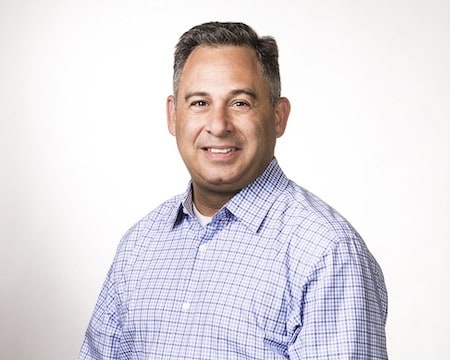 Serta Simmons Bedding LLC” width=”300″ height=”240″> Dan Goldblatt
Serta Simmons Bedding LLC” width=”300″ height=”240″> Dan GoldblattSerta Simmons Bedding LLC
“We prefer the term ‘engaged’ to ‘happy’ because engagement is what drives results. We’ve recently experienced management changes and restructuring that we believe will strengthen the overall organization moving forward and deepen employee engagement. Engaged employees are easy to spot — they believe in the organization’s purpose and mission, they do their job with passion and enthusiasm, and they’re committed to winning as a team.”
— Dan Goldblatt, chief human resources officer for Serta Simmons Bedding LLC in Atlanta. Goldblatt has been with the mattress major for about six months.
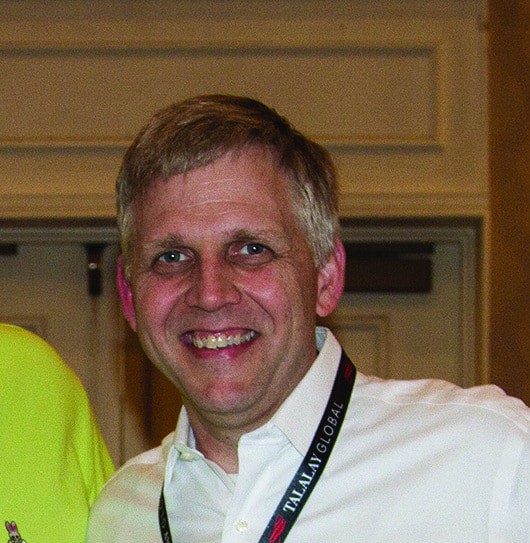
Matt Anderson
Elite Comfort Solutions
“Happiness at work can be recognized in many ways, but we believe key indicators are performance, attitude and engagement. A happy employee is proactive — he or she seeks out more opportunities, new challenges and performance feedback.” — Matt Anderson, vice president of bedding sales for Elite Comfort Solutions, a polyurethane foam division of Leggett & Platt Inc., with headquarters in Newnan, Georgia. Anderson has been with the company for 2 ½ years.
“I define a happy employee as someone who enjoys what they do, where they do it and how they do it. We have a culture where people feel comfortable. It’s not just a job for ‘right now,’ but a long-term job where employees feel that they can grow and not just be another name on a spreadsheet.” — Nick Bates, president of Spring Air International, a mattress licensing group with headquarters in Chelsea, Massachusetts. Bates has been with the family-owned company for 10 years.
2. What are some workplace attitudes or practices at your company that contribute to employee happiness and satisfaction?
“Every employee gets recognized for good work; we celebrate a job well done. That’s true at every level, from the shop floor up through the executive team.” — David Binke, CEO of mattress manufacturer and licensing group King Koil, which has headquarters in Willowbrook, Illinois. Binke, who had worked for the company from 2007 to 2012, rejoined King Koil in 2017.
“We have a great program at Wright where each employee submits ideas to promote a better work environment or create cost-saving opportunities, leaner and smoother work processes, etc. These ideas are reviewed weekly, and monthly drawings are held where the top three ideas are recognized and rewarded. We have a lot of participation companywide. People like to know they are part of success and that their ideas are being heard.” — Kim Grubb, vice president of new business development for Wright Global Graphics, a supplier of marketing materials and top-of-bed items based in Thomasville, North Carolina. Grubb has been with the company for 31 years.
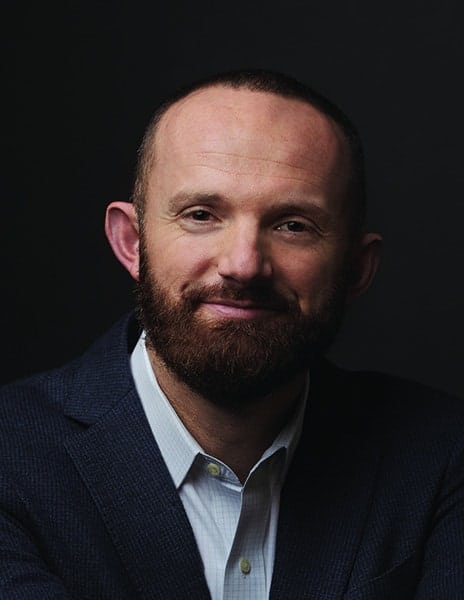
Sam Malouf
Malouf
“To make sure our employees feel happy and supported, we routinely have companywide engagement surveys. There’s always an anonymous suggestion box available so employees can leave feedback. We hold manager trainings and ask leaders to meet regularly with their team members — plus an open-door policy for me and others on the management team. We encourage everyone to build strong relationships with a foundation of trust and communication. We’re definitely not perfect, but we try our hardest to make every employee feel valued and heard. One of our company values is to be better every day, and we’ll keep working on that together.” — Sam Malouf, CEO of sleep products supplier Malouf, based in Logan, Utah. He founded the company with his wife, Kacie Malouf, in 2003.
“We’ve seen an upswing in our learning culture within the last few years. With more employees searching out development opportunities and committing themselves to professional growth, our learning and development team has introduced even more on-demand learning options, learning paths, a three-year program for our emerging leader population and a robust training program for our front-line supervisors.” — Anderson, Elite Comfort Solutions
“The behaviors and attitudes we want to encourage among our team members aren’t radically different from what you see at many organizations. What we hope will set SSB apart going forward are the ways in which our team members bring them to life. Feedback is a gift, and we are encouraging employees to solicit and give it, constructively and continuously. … We are striving to have a focus on strong execution and making continuous improvement a part of everything they do. While individual contributions are important, collaboration is king; we need to win as one SSB team.” — Goldblatt, SSB
“We encourage our employees to develop new and different processes and then task them with proving their model to see if it’s an improvement over a current process. The practice has netted great results and also helps our employees grow within the company. Always taking feedback — and always giving feedback — makes for a healthy employee-employer relationship, contributing to overall happiness. Every member of the team is heard, and every team member knows where they stand. When employees see we are listening to the people doing the work on the front line, they have an incredible sense of pride and ownership. Every week, we host an internal town hall to review basic processes and to discuss what’s happening and what isn’t getting done. The door is open to anyone to make suggestions and recommendations.” — Bates, Spring Air
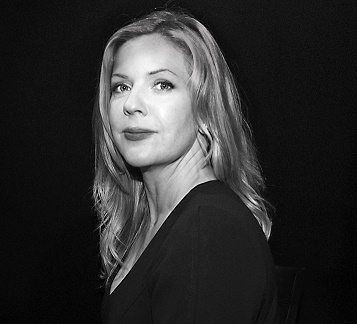
Valerie Stranix
Marshall Mattress
“Each employee has clear goals and targets. This makes for a better understanding with their managers and when receiving feedback. Ambiguity and uncertainty create stress. We try to be transparent with every part of the business so the whole team knows the direction we are going.” — Stranix, Marshall Mattress
“Living the Tempur Sealy values (contributes to employee satisfaction). My personal favorites are ‘We are passionate people,’ ‘We do the right thing’ and ‘We care about each other.’ These values are the foundation of a great culture.” — Underwood, Tempur Sealy
3. What do you personally enjoy about working at your company? What makes you happiest at work?
“Our Thursday morning meetings. We get together to go over our biggest triumphs, talk through industry issues and interact across departments. It’s something that we’ve done for a long time, and these meetings build camaraderie and friendship among employees. Plus, it’s a fun chance to get together, laugh and recognize employees for exceptional work. What a great way to start the day.” — Sam
Malouf, Malouf
 Spring Air International” width=”275″ height=”319″> Nick Bates
Spring Air International” width=”275″ height=”319″> Nick BatesSpring Air International
“Despite being large in scale, Spring Air is a family business with a tight-knit group of professionals that you can rely on. That’s just a natural part of who the company is, and that family atmosphere has grown organically over time.” — Bates, Spring Air
“There is an unwavering spirit of collaboration and belonging here. Cooperation and teamwork are the standard because we know the quality of our daily interactions impacts how much we enjoy our jobs.”— Anderson, Elite Comfort Solutions
“Watching how the team collectively succeeds in whatever we’re doing — acquiring new accounts, satisfying our retail partner requests and needs, and exceeding our goals. Those things continue to drive me. I thrive on the success of our team, and success drives success.” — Binke, King Koil
“I’m the most engaged when I am working on a creative project like product design or developing marketing strategy. I’m a collector of information from all over. … and I’m most creative when I leap across boundaries to pull elements together from a variety of places.” — Morgenstern, Pleasant Mattress
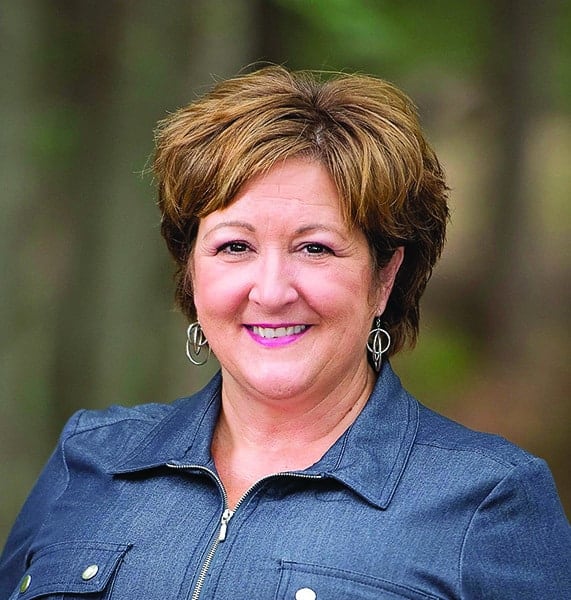
Kim Grubb
Wright Global Graphics
“My favorite part about working at Wright is collaborating with my co-workers to create unique products for our customers. It’s like drawing, coloring, painting and crafting all day long with the smartest and most talented people I know.” — Grubb, Wright
“If the full team shows cooperation, commitment and is satisfied, I’m a very happy CEO. Of course, new opportunities that we translate into new, profitable growth also is a key element of my happiness. We are celebrating our successes together as one team, but also discuss together the lessons to be learned from our failures.” — Ducatteeuw, Latexco
“Happy employees make me happiest.”
— Stranix, Marshall Mattress
Positive Perks
Company-paid health insurance premiums. Personal trainers. Educational funding. Birthday parties. Generous time off.
These are just a few of the employee perks and benefits sleep products industry executives say help to keep their staff happy. Some companies take traditional, commonplace benefits and make them even more generous; other perks reflect the priorities of specific companies and their employees. Peruse the list to see how your company measures up. You might be inspired to add an incentive or two to your own benefits package.
Health and wellness
Many employees value the health insurance they receive through their employers. Sleep products supplier Malouf goes a step further, by covering the cost of premiums.
“We pay 100% of insurance premiums for our employees and their households, and an unmarried partner when applicable,” says Sam Malouf, chief executive officer of the Logan, Utah-based company. “Health insurance prices have skyrocketed, and we don’t want our employees fearing for the welfare of themselves and their families.”
Kim Grubb, vice president of new business development for Wright Global Graphics, a supplier of marketing materials and top-of-bed items based in Thomasville, North Carolina, agrees that “insurance is always at the top of the list when it comes to benefits.” She notes that at Wright, “(we) add in health and wellness classes, smoking cessation classes and club memberships that keep us happy, healthy and fit.”
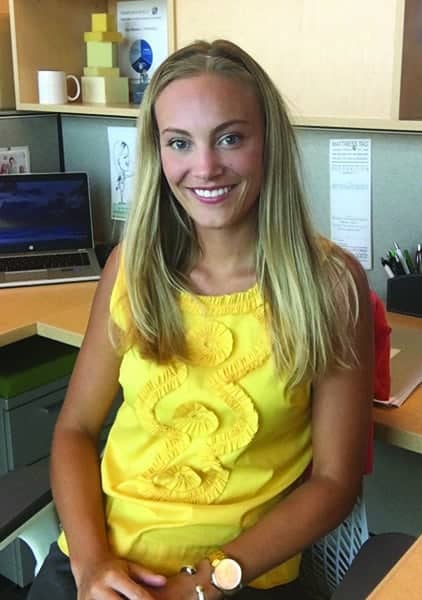
Rachel Underwood
Tempur Sealy International Inc.
Rachel Underwood, manager of human resources for Tempur Sealy International Inc. in Lexington, Kentucky, and Malouf say their companies have on-site fitness centers that make working out more convenient for staff. The new corporate headquarters for Serta Simmons Bedding LLC in suburban Atlanta also has a gym, says Dan Goldblatt, SSB chief human resources officer. For employees who work in other locations, companies like Malouf and SSB offer free or partially reimbursed memberships to health clubs. Added perks at Malouf include a personal trainer and salon at its Logan headquarters.
Time away
Having — and being encouraged to take — vacation time allows employees to rest and recharge, and can make them more energized and creative when they return to work. Adequate sick leave can keep your entire workforce healthier and reduce stress for employees when they need to care for children or other family members. In many companies, both vacation and sick days are lumped into paid time off, which workers can divvy up to suit their needs.
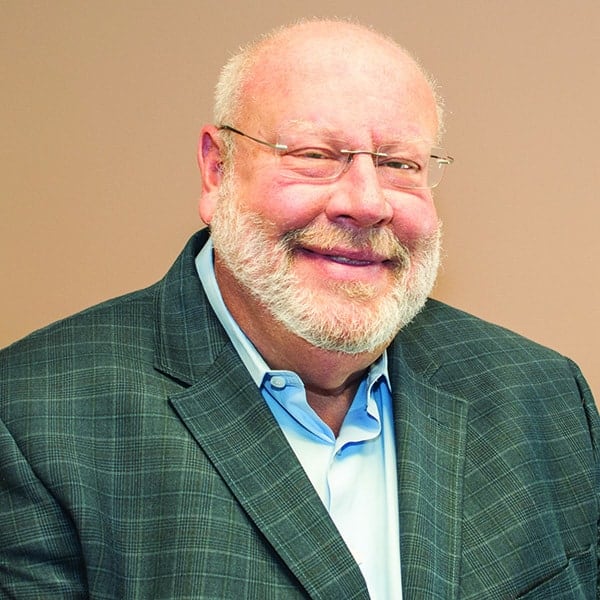
David Binke
King Koil
“We have a very liberal paid-time-off policy. We don’t monitor it. Instead, we do it on trust. People take off as needed because we trust that no one will take advantage of it,” says David Binke, CEO of King Koil, a mattress manufacturer and licensing group with headquarters in Willowbrook, Illinois. The company also offers a bonus program based on company targets, as well as “a nice health insurance plan and a 401(k) program for employees,” Binke adds.
At Malouf, employees can “earn an additional three days of paid vacation time by donating time to charities,” Sam Malouf says. “Many choose to get involved with our own charitable organization, the Malouf Foundation, to help fight child sexual exploitation.”
And in gridlocked Atlanta, SSB gives its employees the gift of time in another way, instituting “early closure on Fridays so employees can get out of the office ahead of the crazy Atlanta traffic,” Goldblatt says.
Care and feeding
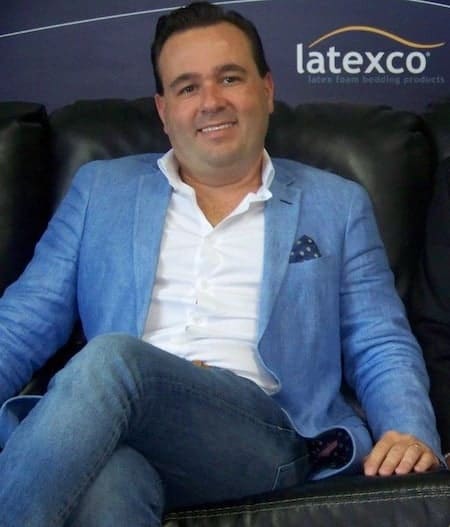
Ben Ducatteeuw
Latexco U.S. Holdings LLC
On-site dining options can keep staff from skipping meals, help them to be more efficient, and encourage relationship building and collaboration. Ben Ducatteeuw, CEO of Latexco U.S. Holdings LLC, a foam supplier based in Lavonia, Georgia, says his company recently built a new employee cafeteria, and employees at Tempur Sealy’s corporate headquarters enjoy “an awesome on-site café,” Underwood says. At its corporate headquarters, Malouf has an on-site kitchen and dining staff, and offers a catered daily lunch at other locations. At SSB, the corporate café features rotating restaurant service to give workers variety, Goldblatt says.
Pleasant Mattress gathers employees together for regular lunches that serve two purposes: celebrating staff birthdays and fostering communication, says Rion Morgenstern, president and CEO of the mattress manufacturer, which is based in Fresno, California.
“Every month we host two birthday lunches. One designated for our factory workers and the other for our managers,” he says. “The first couple of years, the lunches were more of a ‘getting to know you’ setting with eight to 15 people. During the lunch, I ask, ‘What are we doing well?’ and ‘What can we do better?’ It’s an open conversation, and no topic is off limits. We’ve created a safe space so that people can share their honest feedback, and we’re willing to accept criticism without being defensive.”
Pleasant Mattress also hosts four annual “thank you” events to reward staff for “work well done,” Morgenstern says. “In the spring and fall, we have a barbecue in the parking lot and take a long lunch. In the summer, we take all employees and their families to a water park for a full-day celebration,” he says. “At Christmas, we have a catered luncheon and give gifts to each person. The gifts are small but make a big impact.”
Higher ed
Latexco uses its Latexco College to promote continual learning and prepare employees for promotions or other new roles and responsibilities, Ducatteeuw says. A number of educational opportunities are part of the college. For instance, workers can earn certifications, the sales team can gain technical product knowledge, and factory staff can learn more about lean and Kaizen manufacturing principles.
“The beauty is that most (of the learning) is based on the ‘train the trainer’ process,” he says. “In other words, the student with the most knowledge on a specific topic can become the teacher, supported by official documentation and tools that management provides.” Each year, Latexco hosts an awards ceremony to recognize employees for excellence in innovation, process improvement, safety and other areas, Ducatteeuw adds.
Pleasant Mattress takes a broad approach to employee education, helping to fund a variety of enriching endeavors.
“One of my favorite programs we offer is every employee has a $500 grant each year to enrich their lives through education,” Morgenstern says. “If they want to go to a retreat of some kind or take a class, we will support them. We have had people use the grant for church retreats, education and seminars. The only criteria are that the employee completes the program they start.”
A good night’s sleep
Finally, there’s a perk that mattress manufacturers can offer employees that companies outside the sleep products industry aren’t likely to provide — special pricing on mattress sets and other sleep accessories.
As Tempur Sealy’s Underwood explains, “The biggest benefit has to be the employee discount! My friends and family also agree!”






